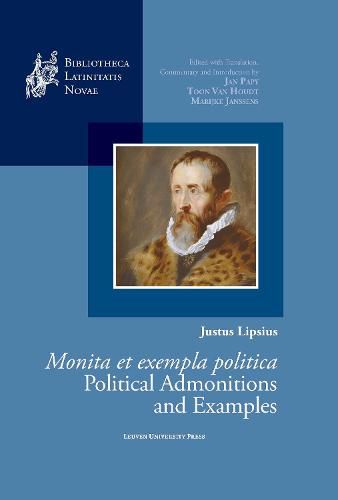Readings Newsletter
Become a Readings Member to make your shopping experience even easier.
Sign in or sign up for free!
You’re not far away from qualifying for FREE standard shipping within Australia
You’ve qualified for FREE standard shipping within Australia
The cart is loading…






In 17th-century intellectual life, the ideas of the Renaissance humanist Justus Lipsius (1547-1606) were omnipresent. The publication of his Politica in 1589 had made Lipsius’s name as an original and controversial political thinker. The sequel, the Monita et exempla politica (Admonitions), published in 1605, was meant as an illustration of Lipsius’s political thought as expounded in the Politica. Its aim was to offer concrete models of behavior for rulers against the background of Habsburg politics.
Lipsius’s later political treatise also forms an indispensable key to interpret the place and function of the Politica in Lipsius’s political discourse and in early modern political thought. The Admonitions - widely read, edited and translated in the 17th and 18th centuries - show Lipsius’s pivotal role in the genesis of modern political philosophy.
$9.00 standard shipping within Australia
FREE standard shipping within Australia for orders over $100.00
Express & International shipping calculated at checkout
In 17th-century intellectual life, the ideas of the Renaissance humanist Justus Lipsius (1547-1606) were omnipresent. The publication of his Politica in 1589 had made Lipsius’s name as an original and controversial political thinker. The sequel, the Monita et exempla politica (Admonitions), published in 1605, was meant as an illustration of Lipsius’s political thought as expounded in the Politica. Its aim was to offer concrete models of behavior for rulers against the background of Habsburg politics.
Lipsius’s later political treatise also forms an indispensable key to interpret the place and function of the Politica in Lipsius’s political discourse and in early modern political thought. The Admonitions - widely read, edited and translated in the 17th and 18th centuries - show Lipsius’s pivotal role in the genesis of modern political philosophy.